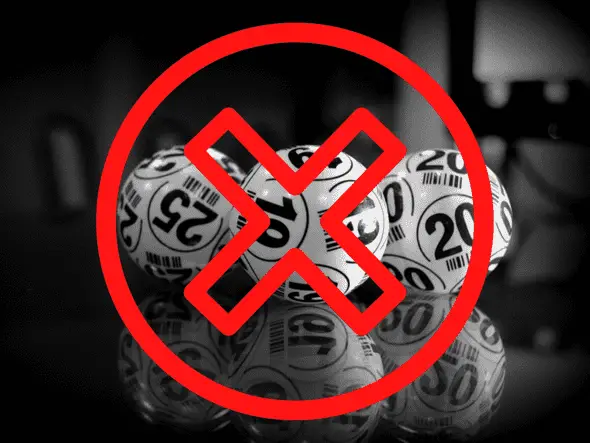Why Does the Lottery Exist?
Lottery tickets can be bought at almost any grocery or convenience store, and for only a couple of dollars, promise that you could be the one to win big. Millions of dollars are spent on such tickets each year.
So, why does the lottery exist? Lotteries are a source of revenue for states and are seen as “voluntary” donations since people willingly buy tickets. The money is then used for public upkeep and as part of the state’s annual budget.
The rest of this article explores why people play lotteries, how they came to be, how much winners receive, and what states use their lottery profits for. Lotteries are a complicated and sometimes controversial topic, so read on to learn more!
History of Lotteries
 Lotteries have been around for a long time. Here’s a brief history of how lotteries in the United States began.
Lotteries have been around for a long time. Here’s a brief history of how lotteries in the United States began.
Colonial Lotteries
Lotteries have been around since colonial times, when the thirteen colonies were the only “states” to exist in the United States. Since lotteries were around in Britain since the 16th century, those who came to America found it natural to have them in their new country.
Additionally, the lotteries, which sold “tickets” by taking payments of livestock, money, and land, helped to fund new colonies. This practice of using lotteries to pay for the needs of the public has continued into modern times and has only increased in popularity.
How State Lotteries Started
 The very first official state lottery was created in 1964, in New Hampshire. The New Hampshire Sweepstakes, as it was called, based its winning numbers on a local horse race.
The very first official state lottery was created in 1964, in New Hampshire. The New Hampshire Sweepstakes, as it was called, based its winning numbers on a local horse race.
Just over a decade later, in 1975, the New Jersey Lottery was the first game to involve computerized numbers.
In 1985, the Tri-States Megabucks was the first to incorporate multiple states. This particular lottery included New Hampshire, Vermont, and Maine.
Gaining Popularity
 In the year 1991, lotteries were gaining popularity quickly, and the Virginia Lottery was the first to install widespread ticket vendors, making playing the lottery easier and faster.
In the year 1991, lotteries were gaining popularity quickly, and the Virginia Lottery was the first to install widespread ticket vendors, making playing the lottery easier and faster.
Also, around this time (or a few years earlier), some states, like California, had decided to start funding public education with lottery profits not paid out to winners. Those who had made this choice heavily advertised the fact, making the lottery a more moral and charity-driven choice for citizens.
Digitizing
 By 2011, the Iowa State Lottery decided to jump on the smartphone bandwagon with a new iPhone-friendly app. At around the same time, Scientific Gaming jumped into the world of social media when they developed a Wheel-of-Fortune game tied to Facebook. This new advance made buying tickets easier, even if a convenience store wasn’t nearby.
By 2011, the Iowa State Lottery decided to jump on the smartphone bandwagon with a new iPhone-friendly app. At around the same time, Scientific Gaming jumped into the world of social media when they developed a Wheel-of-Fortune game tied to Facebook. This new advance made buying tickets easier, even if a convenience store wasn’t nearby.
Big Winners
 As the national lotteries Mega Millions and Powerball increased in popularity, so did their jackpots. Some of the biggest winners in history made their million through these two lotteries.
As the national lotteries Mega Millions and Powerball increased in popularity, so did their jackpots. Some of the biggest winners in history made their million through these two lotteries.
One of the largest unclaimed pots was in the 2016 Powerball Lottery. Week after week, the drawing found no winners. Finally, three winners were proclaimed and walked away rich, each with a piece of the $1.586 billion dollar jackpot (minus state taxes, of course). The huge win only further increased the lottery frenzy.
The second-largest drawing and the largest amount to go towards one winner was in 2018, when an anonymous player in South Carolina won the winning ticket for a whopping $1.537 billion pot in the Mega Millions lottery, resulting in a payout of $878 million. Since South Carolina allows winners to remain anonymous, the lucky ticket-holder isn’t widely known.
Two More States
By 2018, 44 US states had lotteries, while six didn’t. In 2019, the Mississippi Lottery Corporation was born, and in 2020, the Alaska Lottery Corporation was pushed by local legislation.
The advances left only Utah, Alabama, Hawaii, and Nevada as the sole four states without lottery corporations. Previously, Mississippi had balked at any kind of gambling for religious reasons, and Alaska simply didn’t see the need, especially with the vast amounts of oil money they were bringing in.
However, facing the opportunity to increase state funding, both states chose to incorporate a lottery. It is possible that Alabama and Hawaii might also revisit their no-gambling laws, as the need for state money grows.
Why Do People Play Lotteries?
 People play lotteries for that brief sense of hope and fantasy. For only a few dollars, you have a chance - no matter how small, of winning big, buying your dream home, or becoming rich beyond belief. It’s that sense of optimism and irrational hope that keeps people buying tickets.
People play lotteries for that brief sense of hope and fantasy. For only a few dollars, you have a chance - no matter how small, of winning big, buying your dream home, or becoming rich beyond belief. It’s that sense of optimism and irrational hope that keeps people buying tickets.
In fact, gambling can be addictive, for that very reason. The adrenaline rush, the hope, and the risk involved all contribute to the possibility of addiction. The average American will spend $223 per year on lottery tickets - meaning that while some individuals don’t buy any tickets, some spend much more than the average.
A research paper gave evidence that not only are lotteries addictive but that a winning ticket sold in a particular zip code increases overall ticket sales in that area. Sales also increase by state if a big winner bought the ticket in that state.
Who’s Most Likely to Buy Tickets?
 Another interesting tidbit is that more tickets are sold to lower-income households, who perhaps need money more than well-off households. On average, families that make less than $12,400 spend up to five percent of their income on lotteries.
Another interesting tidbit is that more tickets are sold to lower-income households, who perhaps need money more than well-off households. On average, families that make less than $12,400 spend up to five percent of their income on lotteries.
Because lottery-ticket buyers are often lower-income people who typically lose money (lottery odds are not in your favor), some see the lottery as an unfair “tax” on the poor, who should be the most concerned with saving money, not spending it. However, lottery owners can argue that since buying tickets is a choice, that people should be responsible for their own actions.
People with less money are also more inclined to buy scratch-off tickets, with more instantaneous gratification than tickets where you have to wait to hear the numbers drawn, such as Powerball or Mega Millions. Scratch off tickets typically give the player a higher chance of winning a small amount of money.
How Much Do Winners Receive?
 In short, this depends heavily on the lottery. Mega Millions or Powerball, two of the largest national lotteries, offer up millions or hundreds of millions to the person with a perfect match.
In short, this depends heavily on the lottery. Mega Millions or Powerball, two of the largest national lotteries, offer up millions or hundreds of millions to the person with a perfect match.
Many lotteries offer a range of prizes and count “winning” as anything that returns the player money.
For example, on a scratch ticket, two matching symbols might give you a couple of bucks, while a full ticket could win hundreds or thousands. Powerball and Mega Millions offer around a 1/24 or about a 4-5% chance that you win a prize - even if it’s just the two dollars you paid for the ticket. Depending on how many numbers match the winning combination, the prizes increase from there.
However, the real motivator for lottery winners is the massive jackpots that arise from state-sponsored lotteries. One of the largest jackpots was in 2016, with $1.586 billion in the pot. Other top winners are hundreds of millions.
How Do Winners Get Their Money?
 Winners do get to choose how they receive the money- either as a lump sum or in annual payments, called “annuity.” Most winners pick the lump-sum option, which does seem the most tempting - why wouldn’t you want your millions all at once?
Winners do get to choose how they receive the money- either as a lump sum or in annual payments, called “annuity.” Most winners pick the lump-sum option, which does seem the most tempting - why wouldn’t you want your millions all at once?
But the lump sums are subject to a huge percentage of taxes from the state- sometimes up to 30 or 40% of the winnings. They’re also subject to a host of other fees that come along with such a large and sudden accumulation of wealth.
Since most winners choose the whole lot at once, the state makes more than they would if everyone chose smaller annual payments.
For example, Powerball offers both an all-at-once option, or 29 payments over thirty years. Similarly, Mega Millions offers either a lump sum or annuity over 29 years, with one initial payment. The payments for Mega Millions increase by a few percent each year.
Annuity does have a few benefits. For one, people who choose it get more money since the state doesn’t tax as heavily. A winner who chooses annuity will typically see more of the advertised money. Second, the slow-and-steady choice decreases the chance of the person blowing all the money on impulse purchases or investing all of it in one place where it could disappear.
It’s also seen as a way to fend off cash-hungry family and friends because you physically don’t have enough to pay everyone at once. However, the agreement is less flexible than getting all the money at once, because you can’t change the rate or amount of payouts.
Additionally, annuity is taxed at the current rate, which fluctuates, while a lump sum is taxed all at one rate. The state does get money off either decision, though perhaps more at once when winners choose the lump-sum or “cash” options.
Where Does the Rest of the Money Go?
 Since winners typically get less than the whole pot, the state which ran the lottery usually collects the rest. This is a huge reason for states to offer lotteries, and they will receive millions of dollars annually by taxing lottery winners and earning a share of the profit.
Since winners typically get less than the whole pot, the state which ran the lottery usually collects the rest. This is a huge reason for states to offer lotteries, and they will receive millions of dollars annually by taxing lottery winners and earning a share of the profit.
A percentage of the money (up to 50%) goes to the state. Sometimes, citizens vote to put the money towards public education, parks, or preserving wildlife. Other states simply add their lottery share to the general fund for the year and use it on a variety of causes and needs.
The biggest state system that profits from the lottery is education. Typically all or at least a majority of a state’s chunk of money made from lotteries go towards public kindergarten-twelfth grade schools. In this way, states get padding for their education funds, and lottery players can feel good about supporting a charitable cause.
However, states will sometimes replace state funding with lottery funding in order to redirect money to other programs, so while it’s true that schools get most of the funds, this doesn’t always mean they get extra for their budgets. This practice varies from state-to-state and depends on the legislature in place.
However, lotteries are a great way to get easy and rather painless revenue for the local government. This money is then pumped back into the public, in the form of parks, schools, and construction benefits. Even though many people who play lose money, lottery sales go over much better with the public than added property or income taxes.
This is the core of why lotteries exist - that and to please the gambling-loving people of the state, of course.
What Would Happen Without State-Sponsored Lotteries?
 State-sponsored lotteries are legal, and an easy way to gain revenue through citizens willing to give money for a chance to win big. However, some still have qualms against gambling, and religious organizations often classify gambling as immoral or sinful.
State-sponsored lotteries are legal, and an easy way to gain revenue through citizens willing to give money for a chance to win big. However, some still have qualms against gambling, and religious organizations often classify gambling as immoral or sinful.
So what would happen if state lotteries didn’t exist? Well, for one, it would mean that lotteries would be illegal since any lottery, not state-sponsored or state-approved, is against the law. However, as seen in history many times over, when something is illegal, it doesn’t necessarily stop people from doing it.
As an example, from 1920 to 1933, the constitution held the 18th amendment, which rendered alcohol and its consumption illegal. This period was called Prohibition, and during that time, countless underground bars and alcohol manufacturers remained selling alcohol, which was still consumed by the public.
Similarly to this, when lotteries are illegal, people simply run illegal lotteries. Even citizens of states that don’t have lotteries, like Utah, flock to neighboring states that do allow lotteries to buy tickets. The bottom line is that making an activity illegal will not stop people from engaging in it.
For something like a lottery (as opposed to illegal drugs, for example), most states see no issue in running a legal operation, especially if they benefit from the profit. An argument could be made that lotteries aren’t typically harmful and that gambling addicts would find a way to get their lottery fix through illegal methods even if the state didn’t offer one.
Additionally, during Prohibition, the United States lost the opportunity to tax alcohol, meaning they lost revenue during those times. Similarly, if lotteries were to stop legally selling tickets, they would lose an incredible source of public money each year, and would possibly have to raise other taxes. It makes the most sense for the state to legalize the lottery and rake in cash while doing so.
States Without Lotteries
As mentioned before, four states still do not have state-sponsored lotteries, all with different reasoning. However, with states facing deficits, this may be subject to change in the coming years.
Nevada
Home to Las Vegas, the country’s biggest and most famous gambling city, Nevada opted out of a lottery due to pushback from casinos. Though gambling is legal, casinos didn’t want the competition of a state lottery, and since casinos bring in tons of revenue, Nevada respected their wishes. Nevada will most likely not be considering a change to the rules any time soon.
Alabama
In 1999, Alabamians voted against a state lottery. The opposition was mostly organized by church groups and conservative groups, whose populations overlapped with each other. Churches saw gambling as a sin and didn’t want to subject Alabama to the temptation. However, in recent years, legislation has been reconsidering the possibility of a state lottery in order to bring in more funding for the state.
Hawaii
This tropical state relies heavily on tourism, often by families and honeymooners. The local government has rejected any form of gambling due to a fear of changing the tourism economy. They didn’t want to attract rowdy gamblers in case they would scare off their family-friendly reputation and lose a population of tourists. Again, however, recent legislation has considered only allowing a state lottery, especially for local residents.
Utah
Legislation here has decided thus far that it is not Utah’s place to hold a lottery. This might be to appease their large Mormon population, which objects to gambling. However, citizens who want to play the lottery go to the neighboring states of Idaho or Wyoming, which in turn creates revenue for the convenience stores that lie on the borders of Utah. For the sake of a lost money-making opportunity, Utah has also been considering making a change to the rules.
Conclusion
Lotteries are an easy way for states to make more money in order to support public services. This includes education, parks, and construction- all things that everyone can benefit from. Since people voluntarily pay for tickets, lotteries are seen as a source of “painless” revenue, as opposed to direct, non-optional taxes.
Lotteries have been around since the colonial times, and have always served the same purpose. As the practice became more popular and widespread, the jackpots for national lotteries increased, which encouraged more people who fantasize about becoming rich to play.
While there are some states that still don’t have lotteries, they might change their ways if the need for state funding overrides their moral qualms.
